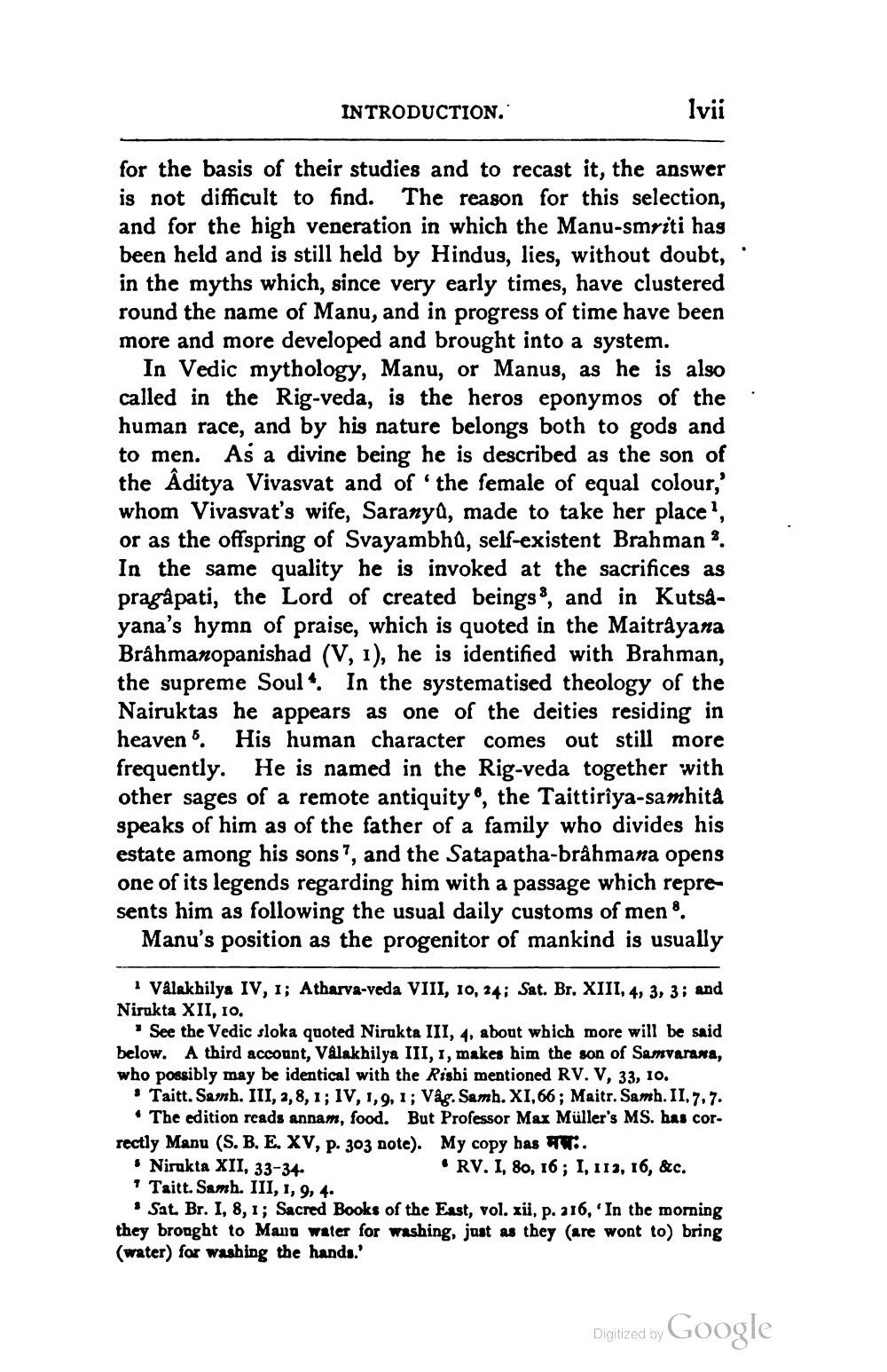________________
INTRODUCTION.
Ivii
for the basis of their studies and to recast it, the answer is not difficult to find. The reason for this selection, and for the high veneration in which the Manu-smriti has been held and is still held by Hindus, lies, without doubt, in the myths which, since very early times, have clustered round the name of Manu, and in progress of time have been more and more developed and brought into a system.
In Vedic mythology, Manu, or Manus, as he is also called in the Rig-veda, is the heros eponymos of the human race, and by his nature belongs both to gods and to men. As a divine being he is described as the son of the Âditya Vivasvat and of the female of equal colour,' whom Vivasvat's wife, Saranya, made to take her place, or as the offspring of Svayambhů, self-existent Brahman. In the same quality he is invoked at the sacrifices as pragàpati, the Lord of created beings, and in Kutsayana's hymn of praise, which is quoted in the Maitrayana Brahmanopanishad (V, 1), he is identified with Brahman, the supreme Soul. In the systematised theology of the Nairuktas he appears as one of the deities residing in heaven. His human character comes out still more frequently. He is named in the Rig-veda together with other sages of a remote antiquity, the Taittiriya-samhita speaks of him as of the father of a family who divides his estate among his sons?, and the Satapatha-brâhmana opens one of its legends regarding him with a passage which represents him as following the usual daily customs of men 8.
Manu's position as the progenitor of mankind is usually
1 Válakhilya IV, 1; Atharva-veda VIII, 10, 24; Sat. Br. XIII, 4, 3, 3; and Nirukta XII, 10.
See the Vedic sloka quoted Nirukta III, 4, about which more will be said below. A third account, Valakhilya III, 1, makes him the son of Samvaraxa, who possibly may be identical with the Rishi mentioned RV. V, 33, 10.
* Taitt. Samb. III, 2, 8, 1; IV, 1,9, 1; Vag. Samb. X1,66; Maitr. Samh. II, 7, 7.
• The edition reads annam, food. But Professor Max Müller's MS. has correctly Manu (S. B. E. XV, p. 303 note). My copy has Her.. • Nirakta XII, 33-34.
RV. I, 80, 16; 1, 113, 16, &c. Taitt. Samb. III, 1, 9, 4. · Sat. Br. I, 8, 1; Sacred Books of the East, vol. xii, p. 316, In the morning they brought to Mano water for washing, just as they (are wont to) bring (water) for washing the hands.'
Digitized by Google




